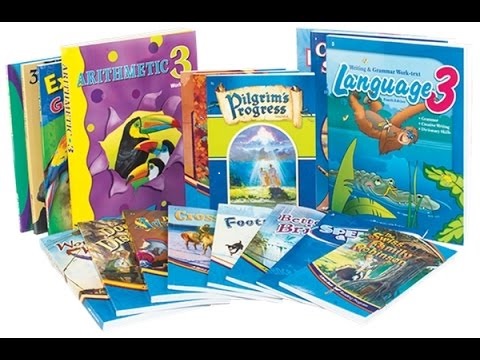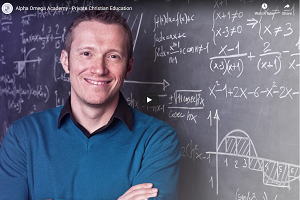Homeschool Explained
What is homeschool?
Well, for the purpose of this website, homeschool basically means official school instruction that occurs at home, outside of the public school system. It requires some sort of official homeschool curriculum that covers all of the subjects adaquately for the corresponding grade level required by the state. Homeschool is not children staying home to avoid school.
States have specific requirements for what families need to do in order to homeschool their children. They also have a list of subjects that homeschooling students must learn for their grade level. Additionally, in many places, including Garrett County, their are local requirements that must be met to homeschool. The parent or guardian of the homeschooled child is responsible for making sure these requirements are satisfied.
Homeschooling families are free to choose their own curriculum or curriculums as long as they are adaquate to meet the needs of the child and fill all requirements. There are a wide range of choices out there, which means that homeschooling families have many options to pair the style of the curriculum with each child’s best learning environment. Types of homeschool curriculums can be divided into several categories, as outlined below:


Styles of homeschooling curriculums
- Book Packs – Book Packs are packets of books, worksheets, quizzes, and tests that can be purchased from a homeschool distributor. Book Packs generally come with a teacher’s manuel with step-by-step instructions for the parent to follow in teaching the curriculum. They also come with a correction manuel with the answers, for those of us who don’t know everything. They often have suggestions for scoring and grading. With Book Packs, parents are responsible for the full instruction of the child. There may be passages for children to read in their textbooks, but the parent is responsible for the actual teaching of the material, administering quizzes and tests, correcting work, and recording scores. Parents will need to keep good records of grades and prepare their own report cards and end of year “final grades”. They are also responsible for making and keeping transcripts that can be used to enroll in college after graduation. Book Packs require a high level of interaction, motivation, time, record-keeping, and organization from homeschooling parents.
- DVD/Video – Some curriculums come on DVD’s or videos online. These are made specifically for homeschool and provide a full year or semester of instruction. The teaching style of DVD’s and On-line videos varies. Some, like Abeka, depict a teacher and classroom where the child can feel like they are “part of the class”. Others, like Monarch, have reading materials or videos. DVD’s and online videos do not have a live teacher giving instruction directly to the homeschooled child. However, some do offer a service where children can call with curriculum questions. Although parents don’t have to be as involved with actual instruction, they do still have to assist the child with understanding the material, and depending upon the curriculum, sometimes administering tests and keeping grades. Parents are responsible for report cards and keeping records and transcripts.
- Academies – Academies vary greatly with regard to how they work. But, in a nutshell, an Academy is an actual on-line school which is responsible for the instruction of the child; grading; and most of the time, transcripts. There are some exceptions regarding the keeping of transcripts. Most academies have strict guidelines that must be followed, and the majority have advanced level work. Some academies require students to be at least 13 or older to enroll.
- College – Once in high school, some homeschoolers may opt to take college classes in place of some high school classes. These classes generate college credit in addition to high school credit. Garrett College offers these duel enrollment classes, as do many online universities around the country. Liberty University offers college courses through Liberty Academy.
- Mixed – The beauty of homeschool is that it is not “one size fits all”. Parents can mix-and-match any of the various forms of curriculums to fit a child’s needs. So, for instance, if a child has a particularly hard time with math, the child could be enrolled in an academy for only math class and complete other classes with Book Packs.
- Electives – There are lots of educational materials out there which can be added to a homeschool curriculum, especially when it comes to electives. YouTube and Outschool, with its live Zoom classes, are good resources. But, we want to stress that these are only “add-ons” to a homeschool curriculum. Because they are not structured to make sure that a student receives all of the instruction needed in a particular grade year, they cannot take the place of an actual homeschool curriculum.

Flexibility
Homeschool has some flexibility. Students can begin their homeschool each year whenever they choose, however, in Garrett County, Maryland, homeschool students are expected to attend 180 days of instruction. So, regardless of the start date, the child needs to have 180 days of school, which must be logged. Homeschoolers can also choose which days they will work. So, if a homeschooling family would prefer to do school on Saturday and take off on Tuesday, they can do that. Additionally, as long as a child completes all of his/her work, the student can have some flexibility regarding start and stop times during the day. We’ve all heard the stories about homeschoolers that only do two hours of school and play the rest of the day. With legitimate homeschool, that’s not reality. It takes much longer than that to complete the curriculum for the day. However, parents can insert hands-on projects during the day as learning opportunities as long as they can clearly help with the goal of teaching the scheduled material. Some flexibility may be lost with academies and colleges, as many of them have specific start and stop dates, in addition to requirements for live classes.
Accountability
Homeschooling families must be accountable for thier homeschool. It is a requirement that parents must prove that students are attending classes and that they are learning. In order to do this, a homeschooling family must be overseen by either the Board of Education, an umbrella, or a school. That means that a homeschooling family is required to either join an official homeschool umbrella in the county, register with a private school, or contact the Garrett County Board of Education about reviewing their child’s school work. To our knowledge, there are no open umbrellas in the county that take new students unless they are already affiliated with the umbrella, however, if this is incorrect, please let us know so that we can include that information in this site. Prospective homeschoolers, however, can become affiliated with Laurel Academy, in Terra Alta, WV, or Calvery Christian Academy in Cresaptown (which does have homeschoolers from our area). Both of these are private schools that oversee homeschooling. The other option is to request that the Board of Education review a student’s work. In this case, the Board of Education will come to the student’s house and look over the student’s work several times per year. Parents must allow them to see where the student completes studies, show them student work, and provide satisfactory proof of competent education for the required period of time.

Reasons families homeschool
Families homeschool for a number of reasons. For some, it may be because they want to incorporate a Christian curriculum, or they may want a higher level of academics, or it may be that a student needs a different style of teaching than that provided in public school. Still others homeschool because of concerns about safety or bullying. Or, some make the choice because of a desire to immerse thier child in a more global culture or to remove a child from “peer-pressure” so that they will develop into thier own person without pressures to conform. Regardless of the reason, homeschooling can be a completely adaquate and exceptional option if families are committed to this type of schooling.


Homeschool and socialization
It has long been argued that homeschooled children don’t learn to properly socialize. However, studies have shown that this is not factual. Today, homeschoolers have many opportunities to socialize with both local and global peers. And, often, because homeschoolers are exposed to varying ages and cultures of friends, they can socialize effectively with wider ranges of society.
Many communities have number of homeschooling groups that allow students to get together for various activities. Additionally, homeschoolers are generally very active in things like church; clubs; and group activities, like 4H; sports; or crafts. The fact is, that the very nature of homeschool encourages more interactivity, not less.
There is a social truth about homeschoolers that may affect how they interact, however. Public school children learn from teachers that predominantly share a regional culture, and many of the individuals around the child, for the most part, share that same culture. Homeschoolers, on the other hand, often learn from teachers in various parts of the country if they are in academies or use DVD or online video curriculums. Additionally, they my have students in their class living anywhere in the world. The result is that these homeschoolers may gain a “Global Social Awareness,” causing them to have a much broader view of the world, their place in the world, and socialization with others outside of their local environment. Of course, not all homeschoolers use these types of curriculums, and this trend tends to only exist in homeschoolers who do.
What is unschooling?
“Unschooling” is a type of homeschool in which children do not have a curriculum, but rather, are allowed to teach themselves through day-to-day projects and activities. In this type of homeschool, the child initiates what he or she wants to learn, as opposed to a parent controlling what is taught. It is highly controversial, because the beliefs behind it state that children should not be forced to learn anything they don’t want to learn. Proponents of this type of homeschool believe that forcing a child to learn something alters the child’s unique gifts and personally.
So, if you are wondering if a child has to learn English and Math, the answer is, technically, “not unless they want to learn it and initiate the learning of it themselves. However, some Unschool parents “nudge” their children in the direction of specific studies, and they may teach skills through day-to-day life. An example would be, “helping balance the family check book” or “learning to write a letter to Great Aunt Sarah”. In “real life”, there are differing applications of Unschooling in different homeschooling families. And some unschooling parents do teach their children the basics through normal instruction.
Proponents of Unschooling are quite passionate about its effectiveness. However, opponents have strong grounds to scrutinize its effectiveness in teaching those not so fun subjects that are necessary to most Americans.
Garrett County, Maryland Tip: Unschooling is illegal in Maryland, although it is legal in some parts of the country. So, for those families interested in homeschooling in the Garrett County, Maryland area, you will not be able to legally unschool your child.